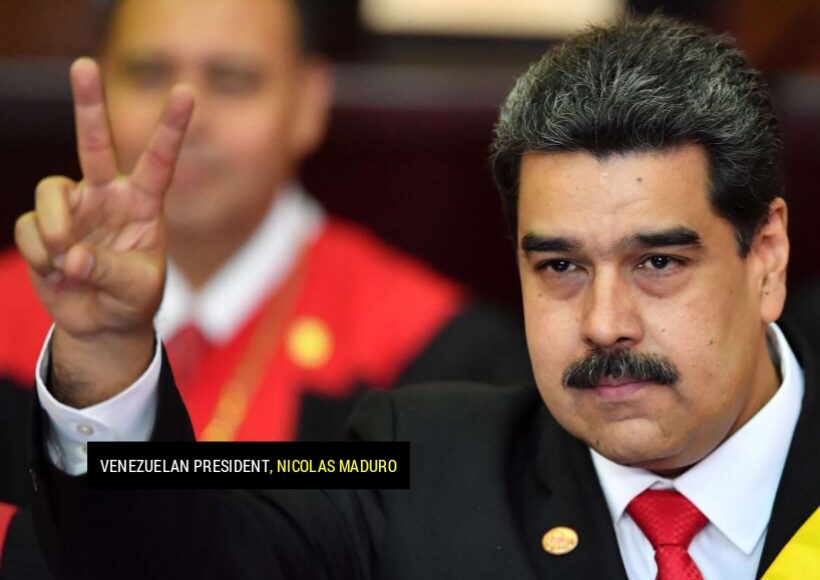By: Sueann Wickham
It is well known that global powerhouses such as the U.S. imposes economic sanctions on nations for varying reasons. But such measures have forced countries to use cryptocurrency to bypass the implications of such restrictions. Venezuela, for instance, is now turning to cryptocurrency called Tether (also known as USTD), amidst crippling oil sanctions recently reimposed by the United States after its President, Nicolás Maduro failed to honour the Barbados agreement which called for a free and fair election to be held in that Spanish-speaking nation in 2024.
Venezuela in the past had already faced a series of sanctions from various countries and international bodies, notably the US and the European Union which began against a backdrop of economic turbulence and political upheaval. This included restrictions on the oil sector, which accounts for a substantial portion of the country’s revenue and led to a significant decline in production. This, coupled with economic mismanagement, resulted in hyperinflation, shortages of essential goods, and a contracting economy.
Although the country is now attempting to use digital currencies like Tether to avoid its funds being seized, this is not the first time the government tried evading sanctions using cryptocurrency. In 2018, the government launched its own cryptocurrency—the Petro, backed by the country’s oil reserves. There were controversies surrounding its legitimacy. And while the Petro allowed Venezuela to access international markets and bypass financial restrictions, there was limited success. This led to a decision to shut down the currency’s use in January 2024.
Reuters reported last week that the country had been boasting of its turn to Tether as it plans to increase digital currency usage in its crude and fuel exports. This was following the U.S. Treasury Department’s recent announcement that Venezuela’s state oil company, Petróleos de Venezuela, SA (PDVSA), and its customers and providers, have until May 31 to conclude transactions under a general license.
The license called General 44 (GL 44) is a specific authorization issued by the U.S. Department of the Treasury’s Office of Foreign Assets Control (OFAC). It permitted certain transactions and activities related to Venezuela, particularly those involving the country’s state-owned oil company, PDVSA and allows for the winding down of pre-existing contracts and transactions with PDVSA and its subsidiaries until May 31, 2024, after which new transactions would require specific authorization from OFAC. It aims to provide a grace period for businesses and entities to adjust to the recent changes in U.S. sanctions policy towards Venezuela.
According to Reuters, PDVSA had been gradually transitioning its oil sales to USDT, a digital currency, also known as Tether, which is tethered to the U.S. dollar and engineered to uphold a consistent value, since last year. The reinstatement of oil sanctions expedited this transition, seen as a strategic maneuver to mitigate the risk of sale proceeds being locked in foreign bank accounts due to the imposed measures, its sources revealed.
For readers who may not be aware, cryptocurrency is a decentralized digital currency that operates independently of a central authority, using cryptography for security and validation of transactions. It enables users to conduct financial transactions directly, without the need for intermediaries like banks. Cryptocurrencies offer a degree of anonymity and privacy, making them attractive for individuals and businesses looking to avoid government oversight and economic sanctions.
By utilizing blockchain technology, cryptocurrencies can facilitate cross-border transactions quickly and efficiently, bypassing traditional banking systems and regulatory controls.
Venezuela may have believed it could sidestep the effects of oil sanctions by utilizing Tether, a stablecoin issuer. But the company announced a few days ago its intention to freeze wallets engaged in using USDT to circumvent sanctions on oil exports from Venezuela. This decision swiftly followed after several reports revealed that Venezuela’s state-owned oil firm, PDVSA, ramped up its adoption of tether subsequent to the U.S. reinstating sanctions on oil exports.
In December, the company froze 41 wallets associated with the U.S. Treasury Department’s Office of Foreign Assets Control (OFAC) Specially Designated Nationals (SDN) list.
“Tether respects the OFAC SDN list and is dedicated to ensuring that sanctioned addresses are appropriately frozen,” a Tether spokesperson informed CoinDesk.
Reuters also reported that PDVSA employs intermediaries when utilizing tether for transactions to increase the difficulty of tracking transfers. Luckily, OFAC has intensified its scrutiny of the crypto industry in the past year, imposing a US$1.2 million fine on crypto exchange CoinList in December for aiding Russian users in evading sanctions. This action followed sanctions imposed on a crypto mixer allegedly used by North Korean hackers. In October of the previous year, Tether froze 32 crypto addresses associated with terrorism and warfare in Israel and Ukraine.
Venezuela is not the sole country resorting to digital currencies to bypass sanctions. Iran has increasingly turned to cryptocurrencies like Bitcoin to facilitate international trade amid stringent sanctions from the US and its allies. Iranian authorities are exploring launching a state-backed cryptocurrency to circumvent sanctions and maintain cross-border transactions, providing a lifeline for its economy amidst isolation from traditional banking systems.
Russia, while not facing sanctions on the same scale, has also embraced cryptocurrencies as a hedge against potential future sanctions. Russian officials often discuss using cryptocurrencies to settle international trade and finance projects, aiming to reduce reliance on the US dollar-dominated financial system.
Even North Korea, one of the most isolated nations globally, reportedly utilizes cryptocurrencies to evade sanctions and fund its nuclear ambitions. North Korean hackers engage in cyber theft and cryptocurrency mining to acquire funds, illustrating the illicit use of cryptocurrencies by rogue states to circumvent international sanctions.
The adoption of cryptocurrencies by nations facing economic sanctions highlights the disruptive potential of digital assets in reshaping global finance and geopolitics. However, this trend poses complex legal, ethical, and security challenges for the international community as regulatory frameworks struggle to keep pace with technological innovation. Balancing innovation and regulation will be crucial in addressing the multifaceted implications of cryptocurrency adoption on a global scale.
Cryptocurrencies have clearly emerged as a double-edged sword in the realm of international relations, offering both opportunities for economic empowerment and challenges for regulatory authorities seeking to maintain financial stability and security. As countries continue to grapple with the implications of cryptocurrency adoption, the issue of evading economic sanctions through digital assets remains a contentious yet evolving phenomenon on the global stage, especially for Venezuela and those seeking to do business there.













